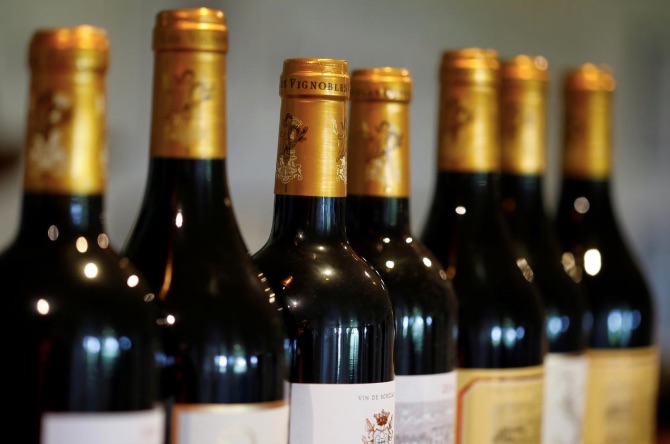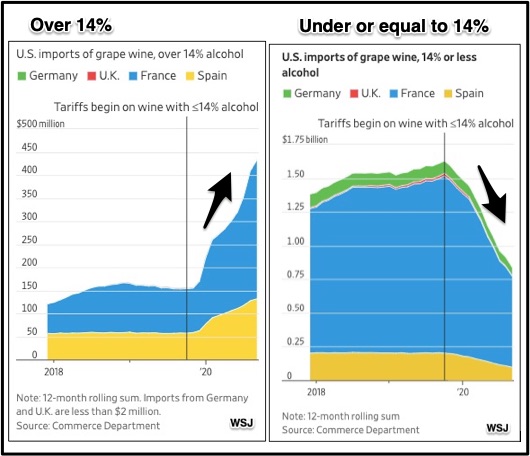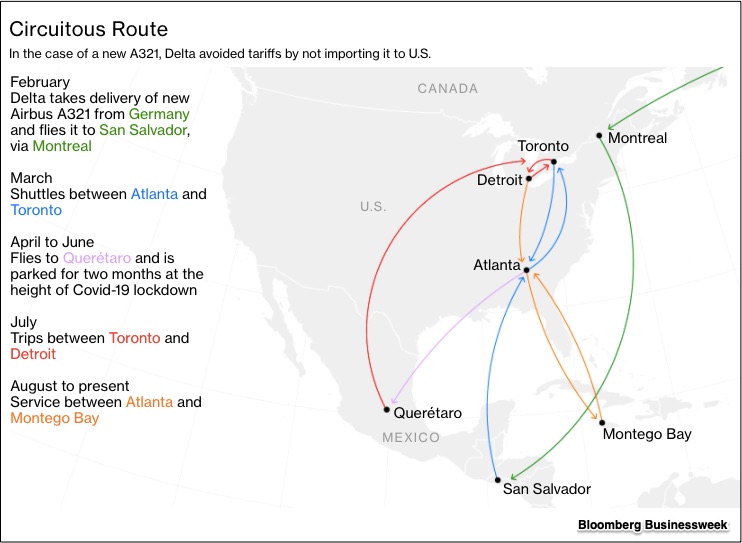
Our Weekly Economic News Roundup: From Pizza Boxes to Vaccine Vials
November 21, 2020
Why It’s Tough To Eat Less (Real) Chocolate
November 25, 2020Tariffs have influenced the behavior of some wine and jet importers.
Wine and Jet Imports
Wine
During 2018, the World Trade Organization said U.S. aerospace companies were harmed by the subsidies given to Airbus by France, Germany, Spain, and the UK. It authorized the U.S. to respond with “countermeasures” that included up to a 25 percent tariff on its agricultural imports. One result was a 25 percent tariff on wine with alcohol content that was equal to or less than 14 percent.
This is where it gets interesting.
For fine wine buyers of a 2019 Cabernet-Merlot blend, the price could have gone up from $153 to $191. But it didn’t because the alcohol content was 14.02 percent.
To avoid the tariff, more wine buyers selected bottles with alcohol content that exceeded 14 percent. Meanwhile, they were less likely to buy a bottle of Bordeaux or a Burgundy with less alcohol.
Below, the graphs display (my arrows) a whopping 48 percent decrease in U.S imports of less potent wine between the same period in 2018 and 2019 after the tariff kicked in:
Or, as one oenophile explained, the tariff made the choice between a a Côte-Rôtie at 13.9% and a Châteauneuf-du-Pape at 14.1%, a no brainer.
Jets
Similarly, those Trump Administration “countermeasures” from 2019 changed Delta’s behavior. To avoid paying what might have been hundreds of millions of dollars in tariffs, Delta took deliveries of new Airbus planes abroad so they could be classified as used when they arrived in the U.S.
For example, during last February when Delta picked up a new Airbus from Germany, the A321 did not go directly to the U.S. It avoided the tariff by flying through Montreal to San Salvador where it remained for two weeks. Then, the plane shuttled between Atlanta and Toronto and headed for a stay in Mexico:
Our Bottom Line: Tariff Economics
You can see why most economists dislike tariffs. Whether it’s wine or airplanes or a slew of other goods and services, tariffs distort the decisions made by markets. They change what businesses are willing and able to produce and what consumers want to buy. By elevating prices, tariffs change production decisions and diminish efficiency. They encourage circuitous routes for planes and fewer purchases of the Bordeaux and Burgundy wines that we enjoy drinking.
My sources and more: It’s always so nice when two disparate articles come together. Yesterday it happened in WSJ and with Bloomberg’s Delta article. Then, if you want more tariff details on the WTO airbus decision, the EU had the facts.
![econlifelogotrademarkedwebsitelogo[1]](/wp-content/uploads/2024/05/econlifelogotrademarkedwebsitelogo1.png#100878)






